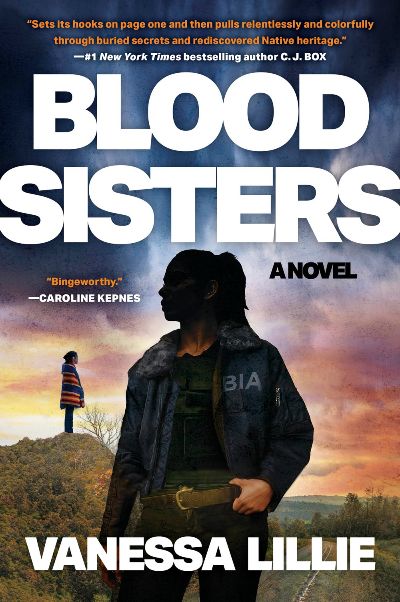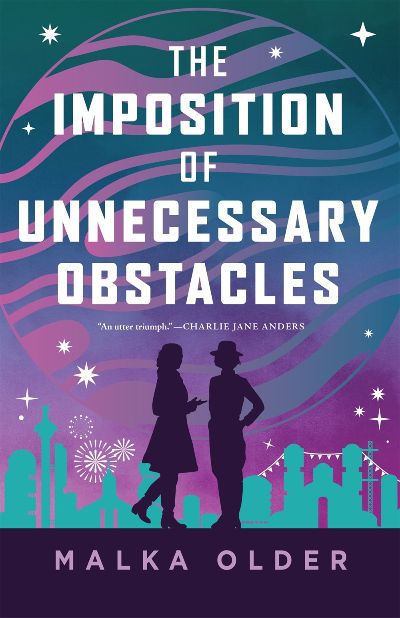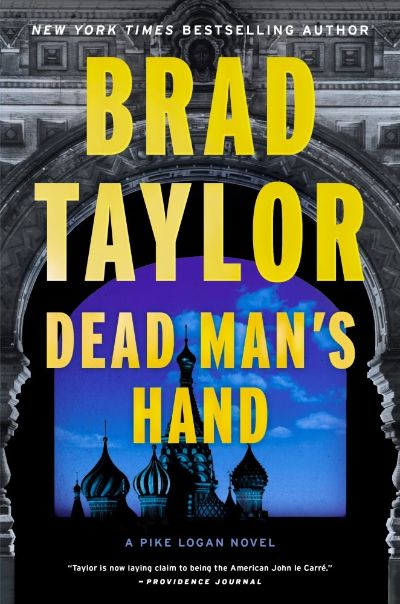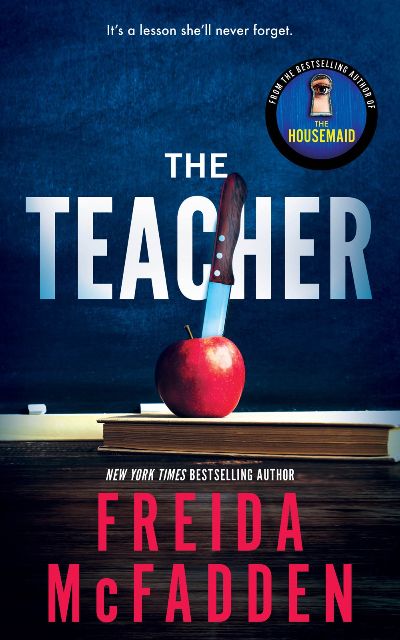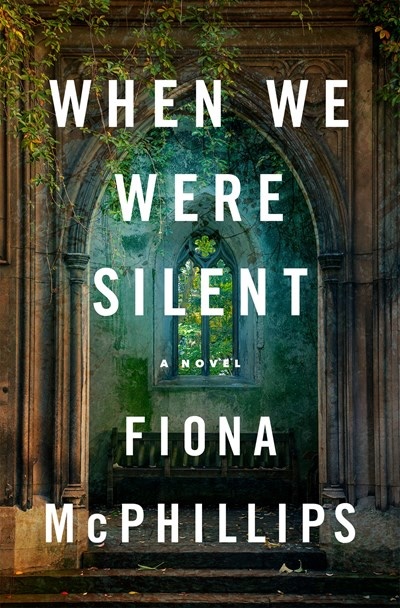“Where there’s pain, there’s blame,” which is why Syd Walker lives far from her Oklahoma roots and hasn’t seen her family in years. As a teen, Syd; her sister, Emma Lou; and her best friend, Luna, were attacked by a pair of masked Tsigilis, the Cherokee word for devils. Syd, who is Cherokee, shot one of them dead, but his gang killed Luna and her parents. She can’t forgive herself for not saving Luna, and the small town of Picher can’t decide, even all these years later, what she should have done that night. That past is now coming back with a vengeance as the epidemic of missing young Native women now seems to have swallowed Emma Lou, and the body of another young woman has been found, with Syd’s old work ID card in her mouth. Syd’s return home immerses the reader in the difficulty of returning to a place and people you’ve outgrown, the bitter choices we must sometimes make—Syd is now an archaeologist for the same Bureau of Indian Affairs that has cost her people so much—and the strength that love and loyalty bring. Lillie (an enrolled citizen of the Cherokee Nation of Oklahoma) adds to the story details of Native history and current day life, with sardonic wit both tempering and highlighting the pain that pierces both times. A dark and propulsive thriller for fans of Kelly J. Ford.
Review
This series debut is sure to delight fans of traditional mysteries as well as those who prefer a good CWC (cozy with corpses). Successful author Eleanor Dash is off on a publicity tour of southern Italy with a rather motley crew of fellow mystery writers; her sister, who is also her manager; a busload of fans; two ex-lovers; a stalker; and a few hangers-on. No sooner does the reader pour a refreshing limoncello than there is an attempt on one of the characters’ lives: that of Charles, one of the exes and a rather suave ladies’ man whom Eleanor has featured in her novels and who receives royalties from her books (what? it’s complicated). In fact, Eleanor would love nothing more than to see Charles dead, although she’s more likely to kill him off in her next book than in real life. As the group ambles about Sorrento and Positano—having fantastic meals and dishing on the publishing industry while managing to dodge the occasional murder attempt—we are treated to the best feature of the book: Eleanor’s witty, droll, and sophisticated voice, on display in dialog, interior monologue, and, best of all, the many footnotes that pepper the text. As roles are upended, and the crime writers become detectives, we also learn more about Eleanor’s personal life, from her complicated relationship with her sister to her remaining passion for Oliver, the other ex. Perfect for fans of The Magpie Murders; the Finlay Donovan series; and Only Murders in the Building.
Whenever you love a book—that would be me and the first book in this series, The Mimicking of Known Successes—you can only approach the next installation with some trepidation. So I’m happy to report that this book more than lives up to my expectations—although it’s important to read the books in order. It’s set against a rather simple mystery: 17 students and staff members are missing from Valdegeld, the Oxbridge-like university where Pleiti is a professor. This is a space opera and a detective story, a romance and a cozy mystery, with the investigation led by Mossa, Pleiti’s lover and a detective, who in this story explicitly asks Pleiti for her help. Set in part on Giant, the huge rings that surround Jupiter and where many humans have settled, this narrative includes a lengthy trip to far-off Io, one of Jupiter’s moons. The pleasures in this book are many. There’s the growing relationship between the two women, especially Pleiti’s worries that Mossa may not have feelings as strong as she does. There’s the brilliant world-building, with special attention to the far-off settlements the two women seek out, revealing the fascinating means of travel and the many smaller, human communities scattered across the vast planet. Finally, there are ruminations from Pleiti about the aim of returning to Earth, her research area, and the hints of political dissent. Brilliant on all counts.
Noted for her historical and speculative fiction (The Spanish Bow; Annie and the Wolves), Romano-Lax ventures into suspense territory with this atmospheric, entertaining thriller about a grieving mother investigating her daughter’s mysterious death. Three months after her 23-year-old daughter was presumed to have drowned in Lake Atitlán, Central America’s deepest lake, Rose arrives in Guatemala. Although a six-week search failed to recover Jules’s body, Rose is unsatisfied with the official investigation’s conclusion. She wants to learn more about her daughter’s final hours and why Jules, who had a lifelong fear of water, was last seen swimming in the lake. A key but uncooperative witness is Eva Marshall, the best-selling memoirist and Jules’s literary idol, for whom the aspiring writer had just started working as a personal assistant before her disappearance. Frustrated with Eva’s refusal to schedule a visit or a phone call from Rose and her ex-husband Matt, a determined Rose signs up under her maiden name for an upcoming memoir-writing workshop taught by the charismatic Eva at her Guatemalan lakeside retreat. “Rose has no ambitions whatsoever as a memoirist, not even the tiniest desire to be published.…But you do what you must, after you’ve already tried everything else.” Despite the glamor and natural beauty of her surroundings, Rose senses something off both in Eva and in how she runs her workshop. Did Jules uncover a dark truth that led to her death? While crafting a taut tale of suspense, Romano-Lax also turns a gimlet eye on the sometimes-toxic writing-workshop industry and the social media demands that turn authors into marketers and branders. In spite of an epilogue that feels a bit forced, the author has written a satisfying tale about the sometimes-strained but always unbreakable bonds between mothers and daughters.
A secret meeting between a rogue team of Ukranians desperate for peace and military intelligence officers from Russia sparks the chaos in Taylor’s latest Taskforce novel. The plan they concoct involves assassinating Putin, but Putin already knows of their plot. His solution is to have his most trusted officer run a counterattack once he commits an act of violence to keep Sweden from joining NATO. Pike Logan and his Taskforce team learn of the Swedish offensive, and soon, they are wrapped in an operation with massive complications. What they don’t realize is that Putin’s contingency, if he’s killed, involves launching the Perimeter Nuclear System known as the Dead Hand. Logan and his team must confront how someone can be the enemy when they have the same goals. Whether this is your first time with the Taskforce or your eighteenth, this series remains intense, timely, and worthwhile. Taylor is one of the best in the special ops world. Brad Thor and Jack Carr fans should already have Taylor on their mandatory reading list.
Mark Lausson is a young English professor at an elite, liberal arts college (think of Kenyon) in Ohio. Yes, he’s incredibly fortunate to have landed the job. But that does little to lift his mid-grade depression and his raging sense of ennui. While he should be enmeshing himself in the life of the college, publishing articles, and working on his book—“cultural discourses of gay sex and murder” is his topic—instead he lets time slip away, unaccounted for. Until the third week of the fall semester, when sophomore Tyler Cunningham walks into his classroom, like some sort of louche meteor entering his atmosphere. Soon, Mark’s fascination turns to obsession, and the two become lovers, with secrecy serving to ramp up the intensity of their affair. This book builds slowly, gracefully, and we’re nearly three-quarters into it when that magical thing happens and readers begin to realize that nothing is what they thought it was. Wonderfully paced and terrifying in its conclusion, this is a book meant to be devoured, not read. I absolutely cannot wait for Willse’s next work.
French made her name in crime fiction by exploring the underbelly of Irish life in her Dublin Murder Squad series, which blew the lid off any leprechauns in the mist-type views of Ireland. Here the little people are dragged back out, but for good reason: the locals in the west of Ireland mountain village of Ardnakelty lay the superstitions and rural naivete on thick when an Englishman comes to town and promises to make them rich. Meanwhile, their real game is, as the book says in a different context, “offensive and defensive weapons as well as broad-spectrum precautionary measures” (I’m from an Irish mountain area myself and French has us pinned to a board like a butterfly). Playing up the stereotypes is working great, with the Englishman, Mr. Rushborough, lapping up stories of his sainted ancestors while the locals plan to scam him. Come to find out, it’s not a one-sided game. There are three great characters here: Johnny Reddy, a local huckster who left his family for London and is now back expecting a hero’s welcome, with Rushborough in tow; Trey, his daughter, who has started to make an honest name for herself as a talented carpenter, and who is seething with rage against her father and the world; and Cal Hooper, a former Chicago cop who’s lived in Ardnakelty for a few years and is having none of Johnny’s bluster. French fans will love reacquainting themselves with these characters, whom they met in The Searcher (2020); newcomers to the author or this series will be glad they tried this emotional saga.
Poor Addie. Her relationship with a teacher last year—when nothing even happened!—has made her the most loathed student at Caseham High. Now it’s September, and not a day goes by that she isn’t bullied by one of her fellow classmates. Thank goodness for Nate Bennett, her uber-handsome English teacher, who acts like she’s the next Sylvia Plath and invites her to join the poetry club, offers her lifts home, and arranges mini-conferences with her after class. But shouldn’t Nate be a little more careful? Poor Eve, Nate’s wife and a mathematics teacher at Caseham. The Bennett’s marriage has pretty much disintegrated—lovemaking is scheduled monthly, although excuses are readily produced. Her one pleasure? Fondling the Louboutin pumps (she’s a full-on fetishist) at the local mall while rolling around in the shoe boxes with the salesman. Secrets are everywhere in this sparkling narrative that moves like a Japanese bullet train, offering plenty of surprises along the way. For fans of B.A. Paris and Shanora Williams.
When Louise (Lou) Manson, a professor at Trinity College, Dublin, goes after a predator from her former school, there are serious repercussions…for her. Of course, says her boss, she must understand that she can’t work while this is going on. And it’s unthinkable, says her daughter’s swim coach, that the teen will be allowed at a swimming competition that meets at the school in question. Moving back in time, swimming plays a prominent role in this debut that mirrors the histories of sexual abuse of some athletes that have come out in recent years, this time focusing on the athletes themselves and their desire for justice. Lou, a great student but whose family is poor, was motivated to get a scholarship to Highfield Manor, the school where her friend killed herself as a result of abuse. As a student, Lou believes, she can catch the culprit red-handed and bring him to justice. But it’s a foolish plan, one that enmeshes her immediately and for years in mental and physical torture and that brings all involved to a courtroom nailbiter. That’s when we think it’s over, but McPhillips has twists in store in this absorbing psychological drama that examines the relative strengths of loyalty, revenge, and truth. A spot-on depiction of the maelstrom that is teenage friendship is a plus. Try this one if you like a story of a woman who’s had enough and isn’t afraid to show it anymore.
Peikoff’s latest exploration into choice and free will takes the reader to a future in which families can choose their baby’s characteristics and genetic makeup before gestation and birth. It’s as simple as getting DNA, and clinics and pre-selection counseling have strict protocols to ensure the parents have the background necessary for a successful transaction. Celebrities need security to keep their DNA from inadvertently being left behind at places they frequent and then being stored in a black-market site called the Vault. For a fee, you can purchase a child that would be considered a legitimate son or daughter of that celebrity. A surrogate named Quinn starts to believe the source of the infant she’s carrying is not a widower’s dead husband’s DNA but a famous singer named Trace Thorne. A young journalist named Lily sees her older parents use unscrupulous methods to have another child. Peikoff does a terrific job of world-building a complex but realistic future full of jaw-dropping twists. Baby X is great sci-fi and reads like a terrifying episode of Black Mirror.

